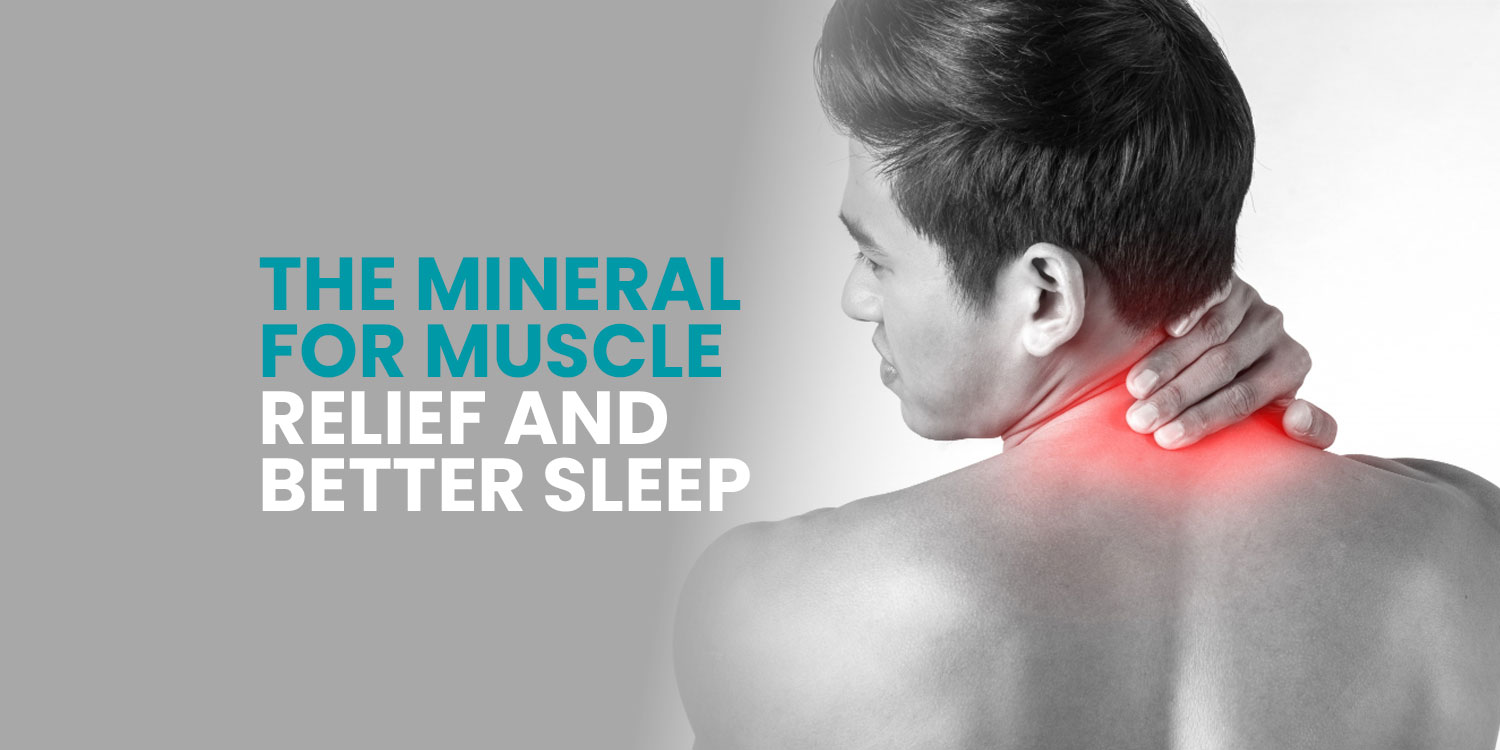Magnesium: The Mineral for Muscle Relief and Better Sleep
Do you often struggle with muscle tightness or find it hard to get a good night’s sleep? If so, you might be missing out on a key mineral that can help with both—magnesium!
How Magnesium Helps with Muscle Pain
Muscle tightness and cramping can be frustrating, whether it’s from exercise, stress, or poor posture. Magnesium plays a crucial role in muscle relaxation by helping regulate calcium levels in muscle cells (Volpe, 2013). When magnesium levels are low, muscles can stay contracted longer, leading to tightness and discomfort (Rosanoff et al., 2012). By ensuring you get enough magnesium, your muscles can relax properly, reducing pain and stiffness.

The Sleep-Boosting Benefits of Magnesium
Struggling with sleep? Magnesium can help here too! This mineral has a natural calming effect on the nervous system, promoting relaxation and reducing stress (Abbasi et al., 2012). It supports the production of GABA (gamma-aminobutyric acid), a neurotransmitter that helps quiet the mind and prepare your body for restful sleep (Boyle et al., 2017).
People who take magnesium often report falling asleep faster and experiencing deeper, more restorative sleep. If you find yourself tossing and turning at night, adding magnesium to your routine might make a difference.

How to Use Magnesium for Muscle Relief and Sleep
If you’re looking to boost your magnesium intake, here are a few easy ways to do it:
- Magnesium Supplements: Available in different forms like magnesium glycinate, citrate, or oxide. Magnesium glycinate is often recommended for sleep and relaxation due to its calming effects (Walker et al., 2018).
- Magnesium-Rich Foods: Include spinach, nuts, seeds, bananas, and dark chocolate in your diet (NIH, 2021).
Topical Magnesium: Magnesium sprays, oils, and Epsom salt baths can be great for muscle relief. Epsom salts are a form of magnesium sulfate and are commonly used in baths to soothe sore muscles (Whelan & Jurgens, 2019).

Final Thoughts
Magnesium is a simple yet effective way to ease muscle tightness and improve sleep naturally. Whether you get it through diet, supplements, or topical applications, this essential mineral can help your body relax and recharge.
If you’re experiencing muscle pain or struggling with sleep, consider adding magnesium to your routine—it might be just what you need!

References
- Abbasi, B., Kimiagar, M., Sadeghniiat, K., Shirazi, M. M., Hedayati, M., & Rashidkhani, B. (2012). The effect of magnesium supplementation on primary insomnia in elderly: A double-blind placebo-controlled clinical trial. Journal of Research in Medical Sciences, 17(12), 1161–1169.
- Boyle, N. B., Lawton, C., & Dye, L. (2017). The effects of magnesium supplementation on subjective anxiety and stress—A systematic review. Nutrients, 9(5), 429.
- National Institutes of Health (NIH). (2021). Magnesium: Fact Sheet for Health Professionals. Office of Dietary Supplements. https://ods.od.nih.gov/factsheets/Magnesium-HealthProfessional/
- Rosanoff, A., Weaver, C. M., & Rude, R. K. (2012). Suboptimal magnesium status in the United States: Are the health consequences underestimated? Nutrition Reviews, 70(3), 153–164.
- Volpe, S. L. (2013). Magnesium in disease prevention and overall health. Advances in Nutrition, 4(3), 378S–383S.
- Walker, A. F., Marakis, G., Christie, S., & Byng, M. (2018). Magnesium supplementation: Does it reduce muscle cramps? Journal of the American Board of Family Medicine, 31(2), 237–245.
Whelan, A. M., & Jurgens, T. M. (2019). Topical magnesium for the treatment of pain: A systematic review. Complementary Therapies in Medicine, 47, 102221.




